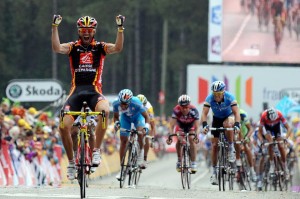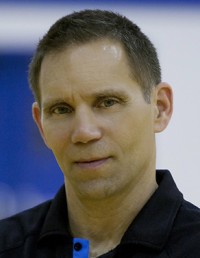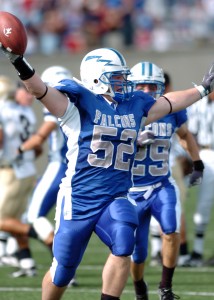The Importance of Setting Goals – You talk to just about anyone who is very successful ir jordan 11 low ie bred 199 in sports and they will tell you the importance of setting goals…objectives that dictate the direction you want to travel.
Goals are an important aspect of success, as they represent not only the starting point of one’s journey but also the end result after all the hard work, dedication, commitment, sacrifice, etc., one puts in.
In short, goals are a point in the future where one wants to be; a firm place to reach for even higher levels of accomplishment—one’s next goal…or set of goals.
Without goals, many tend to flounder…go through the motions. Oh sure…they may still work hard and be committed, but with no higher level to reach for…there is no real direction, no place from which to build new objectives.
However, it is important to keep in mind that one’s goal (or goals), once set, are more “out of mind” during one’s training.
They are in effect, always there, motivating and inspiring us to work toward them, but they are not normally something one focuses directly on during practice, as they tend to be global or more long-term in nature.
From this point, the question then becomes…what lies between nike foamposite shoe history where one is now and that main objective or goal one wants to achieve in the future?
This is an important question as the answer helps determine what one does on a daily basis. And when applied effectively…it can turn extrinsic goals (like wanting to be a state champion, earn a scholarship, break a record, have a winning season, or even simply just make the team) into something more intrinsic or internal…an idea I am a strong supporter of.
So how is this accomplished? How does one turn external objectives, like the ones mentioned above, into something more internal and useable…something that helps athletes on a daily basis?
Well…from my vantage point…this is accomplished through the setting of what I call daily mini-goals.
These mini-goals are objectives an athlete (team or coach) decides upon each day before practice. They are pieces and/or parts of one’s skillset that must 200 Release Date – nike gold air chukka moc high school – SBD – nike gold air yeezy glow in the dark sneakers boys Rattan Obsidian CZ4149 be accomplished before training is completed. In fact, you don’t simply practice these skills and move on, you do a certain number of them right or correct (working toward mastery) before continuing.
They are much, much smaller than the larger, more global goal that sets one’s original direction, yet each directly impacts forward movement toward what you ultimately want to achieve.
Similar in analogy to climbing a set of stairs or a ladder, every time you accomplish those mini-goals for that day, you gradually move up one more step…one more rung on that ladder…closer toward your main objective—your main goal. It is a highly focused effort that helps one develop the kind of mental toughness necessary to achieve athletic excellence…actually, any kind of excellence.
In the end…it is one’s skill set, and the improvement of that skill set, which dictates the likelihood of one’s success…or lack thereof. And the stronger, more foundational one’s skillset is…the better the tools one brings to the competitive table.
To help clarify, examples can include working toward mastery of fielding and batting in baseball, shooting and ball handling in basketball, overhand/underhand passing Sean O'Malley Reacts To Tony Ferguson's DUI Arrest: "What Are We Doing Here?" - Sports Illustrated MMA News, Analysis and More, serving, and hitting in volleyball, handstands and other skills in gymnastics, or learning to run certain plays or other movements in most sports, or conditioning for any sport. In my mind ,all of these can be used (as long as they are specific to one’s sport) as mini-goals for daily practice sessions.
However, this list above should not be misconstrued to be comprehensive by any stretch of the imagination, just some pieces of skillsets from a variety of sports to create better understanding. And keep in mind that one’s (or a team’s) skillset can be broken down further, or combined, in order to formulate the correct set of objectives for any given day.
Again, what you want to accomplish, in the end, is always there, but your concentration is focused directly on those daily mini-goals, not necessarily on the larger, more global goal that has set your direction.
 Keeping one’s main focus on daily objectives (mini-goals) puts much more control in the hands of the athlete (coach or team) by taking an extrinsic goal (or goals) and placing concentration on what one actually does. It transfers something external (outside of oneself) into something more internal(inside oneself) by narrowing the athlete’s attention down to something they have more power over…something controlled by their efforts.
Keeping one’s main focus on daily objectives (mini-goals) puts much more control in the hands of the athlete (coach or team) by taking an extrinsic goal (or goals) and placing concentration on what one actually does. It transfers something external (outside of oneself) into something more internal(inside oneself) by narrowing the athlete’s attention down to something they have more power over…something controlled by their efforts.
Turn your dream or vision of what you want into reality, learn to use daily mini-goals and start climbing that ladder…and then watch what happens.
(Note: Further details and in-depth clarification on this concept, and others, located in the book Becoming a True Champion)
Author:

Kirk Mango is a former Division I NCAA Champion, Three-time All-American, and Three-time Hall of Fame athlete. He is the author of the book Becoming a True Champion: Achieving Athletic Excellence from the Inside Out (Publisher: Rowman& Littlefield, 2012). He also writes for the Tribune ChicagoNow blog network.

